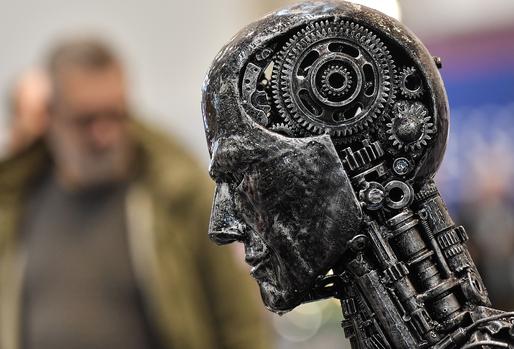
The impact of these technologies pervades nearly every sector of our economy, affecting a wide range of occupations across healthcare, finance, transportation, energy, manufacturing and beyond.
As with previous industrial revolutions, these advances have the potential to bring extraordinary benefits to society, contributing to tremendous prosperity in the long run.
Innovations will also transform the future of work, exacerbate the skill bias of recent decades, and contribute to a growing chasm between the best and least educated in society.
There are a significant number of predictions and analyses about the risks posed by advances in these technologies. One such study, conducted by the Organisation for Economic Co-operation and Development, estimated that about 14percent of jobs across its member countries are highly automatable, and another 32percent will be radically transformed by technological progress.
To add to that, consider how the rise of the gig economy in recent years has challenged traditional work structures. According to the McKinsey Global Institute, 20 to 30percent of the working-age population in the US and the EU is engaged in technology-enabled and on-demand, independent work; a number that is expected to grow.
While some jobs will become automated and others will change significantly because of technology, we also recognise that new markets, industries, and jobs will be created - some of which we cannot even imagine today.
In this fast-paced economy, learning should be seen as a lifelong endeavour for individuals at every stage of their career. How should higher education and its partners be adapting in order to provide the workforce the foundational competencies and skills they’ll need, both now and into the future? I offer four broad areas where we can find solutions:
As entire new industries are created and traditional ones expand and contract significantly, the skills needed to keep up are evolving at a faster rate than ever before.
Educators and higher education leaders must approach skills competency with a flexible growth mindset that will serve students well across the global, knowledge-based economy - and throughout their careers.
There is an undeniable need to train the next generation in emerging digital competencies and to be fluent in designing, developing or employing technology responsibly.
At the same time, 21st-century students must learn how to approach problems from many perspectives, cultivate and exploit creativity, engage in complex communication, and leverage critical thinking. With a future of work that is constantly evolving, these non-automatable “human” skills are foundational.
The broad set of skills needed by tomorrow’s workforce also affects our approach to educational structure.
At Carnegie Mellon University - like many other institutions - we have been making disciplinary boundaries much more porous and have launched programmes at the edges and intersections of traditional fields. We believe this approach prepares our students for a future where thinking and working across boundaries will be vital.
Farnam Jahanian is an American computer scientist and academic. He serves as the 10th president of Carnegie Mellon University.
BUSINESS REPORT